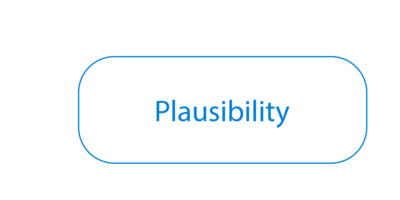
Definition of Plausibility
Plausibilities (and routines) are what orientation relies on. Something is plausible if one agrees immediately without the need of further questions or justifications. Plausibilities are self-evident, go unnoticed, and thus are usually not made explicit. Once they are articulated, they become questionable. If plausibilities are called into question, new plausibilities for questioning plausibilities come to the fore. These implicit plausibility standards allow for a self-evident orientation to another individual orientation in a group or society. Groups and societies protect their respective plausibilities in their ways of life against further questions and maintain their implicit legitimacy.
Also all scientific argumentations end in plausibilities and proceed from them. In philosophy, this has mostly gone unnoticed while it strived for last justifications (chap. 1.3).
Note:
The chapters and the page numbers refer to the book by Werner Stegmaier, What is Orientation? A Philosophical Investigation, translated by Reinhard G. Mueller (Berlin/Boston: De Gruyter, 2019).
XIV, XVII, 9-14, 64-65, 84, 104, 129, 160, 187, 198, 216, 269-272
Click for more Philosophy of Orientation glossary terms.
